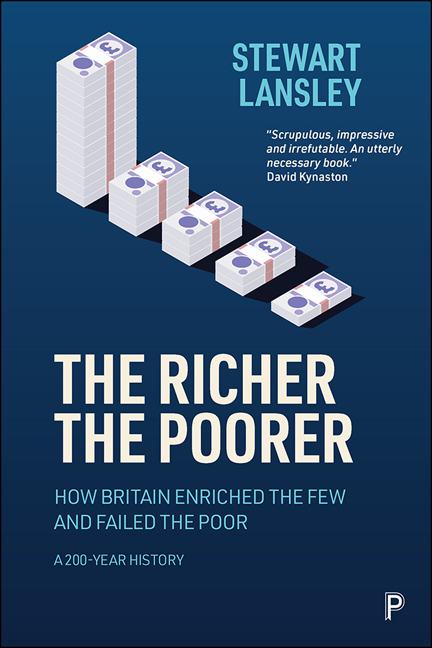Book contents
- Frontmatter
- Miscellaneous Frontmatter
- Dedication
- Epigraph
- Contents
- List of figures
- Preface and acknowledgements
- Introduction: Knighthoods for the rich, penalties for the poor
- PART I 1800–1939
- PART II 1940–59
- PART III 1960–79
- PART IV 1980–96
- PART V 1997–2010
- PART VI 2011–20
- Afterword: COVID-19 and ‘the polo season’
- Notes
- Index
- Frontmatter
- Miscellaneous Frontmatter
- Dedication
- Epigraph
- Contents
- List of figures
- Preface and acknowledgements
- Introduction: Knighthoods for the rich, penalties for the poor
- PART I 1800–1939
- PART II 1940–59
- PART III 1960–79
- PART IV 1980–96
- PART V 1997–2010
- PART VI 2011–20
- Afterword: COVID-19 and ‘the polo season’
- Notes
- Index
Summary
For a while, there were signs that the Conservatives were intent on a softer line on social policy. In 2015, cabinet minister Michael Gove called on Conservatives to be ‘warriors for the dispossessed’. After winning the 2015 general election with an overall majority, David Cameron, flirting with ‘red Toryism’, promised ‘an all-out assault on poverty’. In support, an informal group of Conservative MPs, the ‘compassionate Conservative caucus’, was launched.
When, following the 2016 Brexit referendum, Theresa May replaced David Cameron as prime minister, the country had faced the deepest fall in living standards in living memory. Millions in the poorest half of the population were worse off in 2017 than in 2003. While unemployment had been falling from the post-2008 recession, an estimated 4.6 million people were left in ‘precarious work’. The ongoing robotic revolution, along with the casualisation of work, including among professionals, had contributed to a steady hollowing out of middle-paid jobs and growing work insecurity, while helping to raise the incomes of those driving the changes and those with the necessary new skills. There remained an extraordinary variation in the quality of work and its capacity to prevent poverty, while some companies adopted a highly controversial ‘fire and rehire’ strategy with employees losing their job and being rehired on poorer terms. A House of Commons enquiry, for example, found working conditions at the retail chain Sports Direct to be ‘Victorian’.
For many, the reality of work was of agency working, of involuntary under-or self-employment and of zero-hours contracts, while insecure work was the most likely destination for those moving off social security and into employment. What was being built was a form of quasi-employment, marked by volatile income in dead-end, low-paid and often intermittent jobs with few prospects.
As wage stagnation became a defining feature of the UK economy, the governor of the Bank of England, Mark Carnie, lamented a ‘lost decade’ of falling real wages, the worst record since the 1860s when, as the governor put it, “Karl Marx was scribbling in the British Library”.
- Type
- Chapter
- Information
- The Richer, the PoorerHow Britain Enriched the Few and Failed the Poor: A 200-Year History, pp. 224 - 230Publisher: Bristol University PressPrint publication year: 2021



